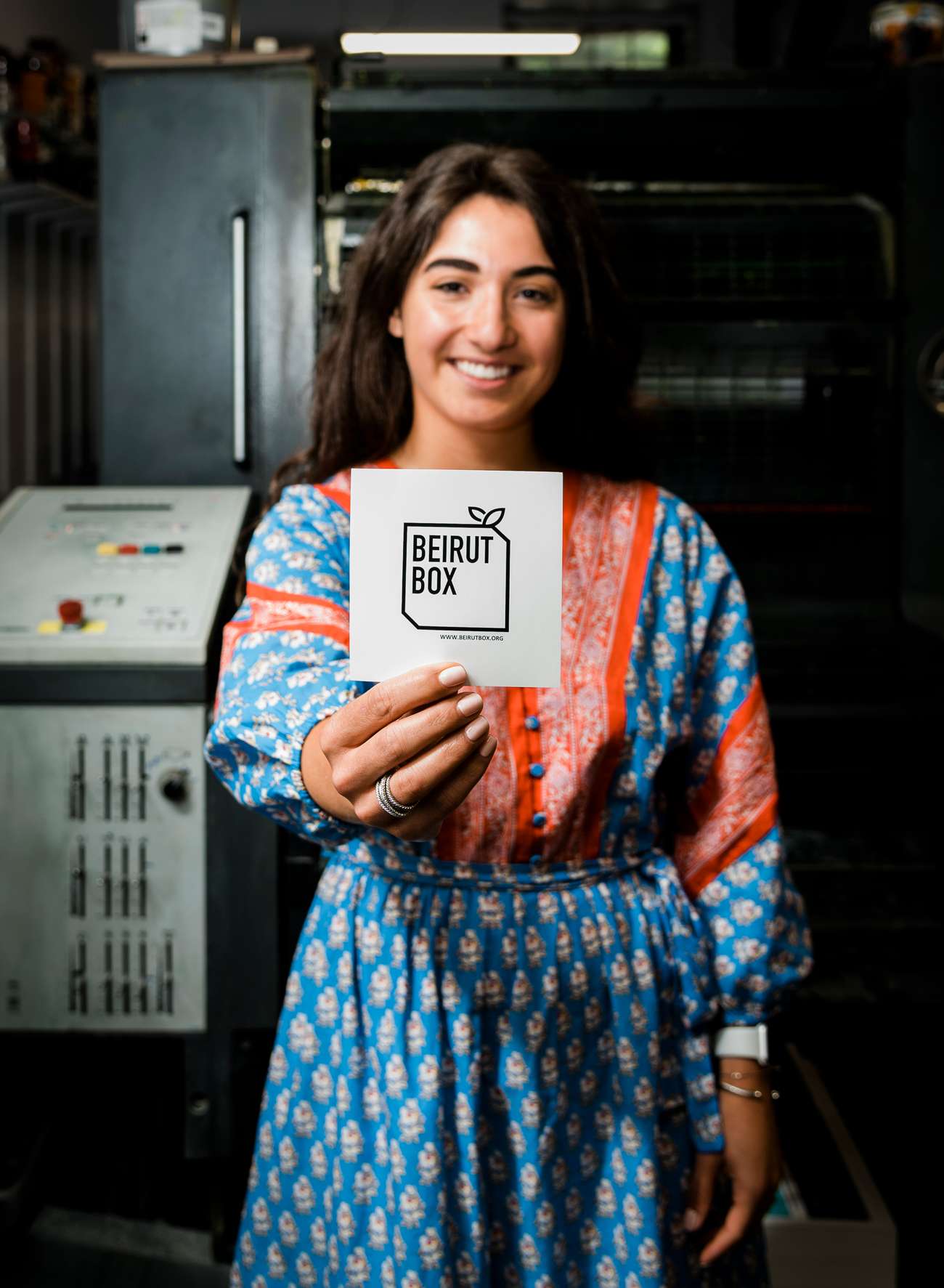Worry for their home city of Beirut was palpable as Gabriel Farhat and his daughter, Chéna, sat in the attic of the family’s Saugus print shop Wednesday.
It’s now been one month since Lebanon’s capital was rocked by an enormous explosion that killed nearly 200 civilians and wiped out much of Beirut’s bustling port area, leaving more than a quarter of a million homeless and causing an estimated billions of dollars in damage to the historic city.
Despite the fact U.S. news coverage has largely since turned its focus back to the ever-present coronavirus pandemic, the Farhats say Lebanon, and Boston’s Lebanese-American community, continues to reel from the blast’s devastating effects as grassroots efforts around the world scramble to collect funds for those most affected.
“We have a lot of family and friends (in Beirut), but it’s obviously more traumatic for everyone who’s actually there,” said Chéna, 26. “The devastation seems to get progressively worse every day.”
Gabriel, 57, added: “Lebanon is a very small country and people know each other. A lot of people lost their homes. A lot of people were hurt, and a lot of those buildings you cannot replace because they are a thousand years old.”
Born in Lebanon, Gabriel first came to the Boston area to attend university four decades ago before eventually purchasing Park Press Printers in the early ’90s.
Although the family has since happily made their home in Massachusetts, summers are usually marked by long visits to family and friends in Lebanon, where Chéna said she and her brothers have countless childhood memories of the city’s vibrant culture and welcoming people.
“Growing up, we had a very strong connection to Lebanese culture,” Chéna said. “(When we’re) there, we speak the language, and all of our cousins, aunts, uncles, grandparents are there. Being able to spend time with them over the summers was very influential in who we are.”
Wanting to give back in any way they could, the family said they were honored to recently partner with Beirut Box as part of a creative local effort that aims to fundraise through food.
A Boston-based initiative that has since gone national, the concept was first devised by Lebanese Americans Diala Ezzeddine, Hashim Sarkis, Habib Haddad, and Hala Hanna, who initially reached out to local Mediterranean restaurants asking if they would be interested in adding a special “Beirut Box” to their menus, the proceeds from which would go toward disaster relief efforts.
For their part, the Farhats currently use their Saugus facilities to print label stickers for the boxes, and other materials, including banners and flyers, to help raise awareness.
“The idea of Beirut Box stems from the love of cuisine and the importance of cuisine in our culture,” Chéna said. “Food is so important in Lebanese culture and community, and there are so many dishes. It’s popular throughout the world, whether you’re Lebanese or not.”
Unique to each location, Chefs at participating restaurants are asked to come up with their own take on the “Beirut Box” by including special menu items inspired by Lebanese cuisine.
Any restaurant, regardless of cuisine type, is welcome to participate, and all proceeds are donated to the “Beirut Emergency Fund” hosted by SEAL (Social and Economic Action for Lebanon). One hundred percent of funds raised go directly to vetted non-governmental organizations providing on-the-ground relief assistance.
Boston restaurants currently participating include Aceituna, Al-Wadi Boston, Annoush’ella, Cafeteria, Committee, Fairuz, NuBurger, Oleana, Moona, Sarma, and Sofra.
“It’s interesting. It’s fun,” Gabriel said. “Everybody’s getting involved, and while you’re eating, you’re still helping a good cause. It’s a win-win.”
For those interested in donating to help Beirut rebuild, the Farhats ask that funds be sent to non-governmental organizations, including the Lebanese Red Cross, UNICEF Lebanon, or IMPACT Lebanon. More information about the Beirut Box initiative can be found at beirutbox.org, or on Instagram at beirutbox.

